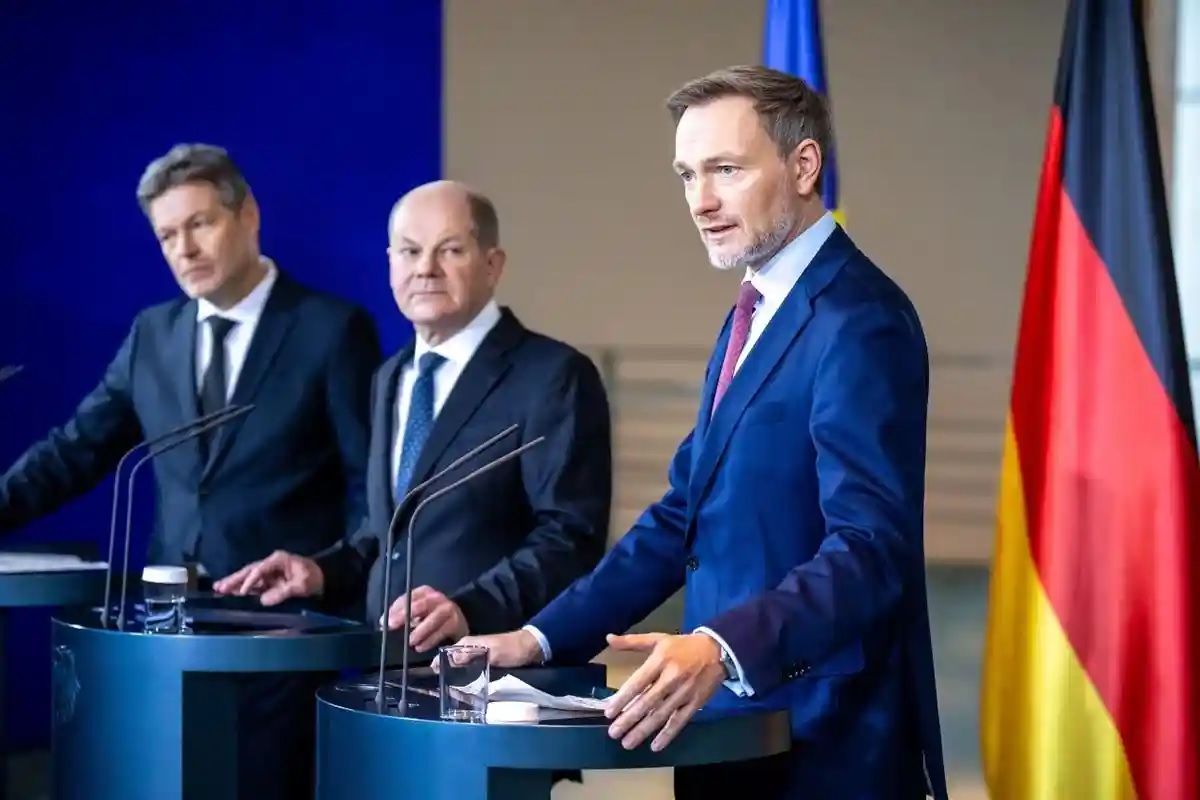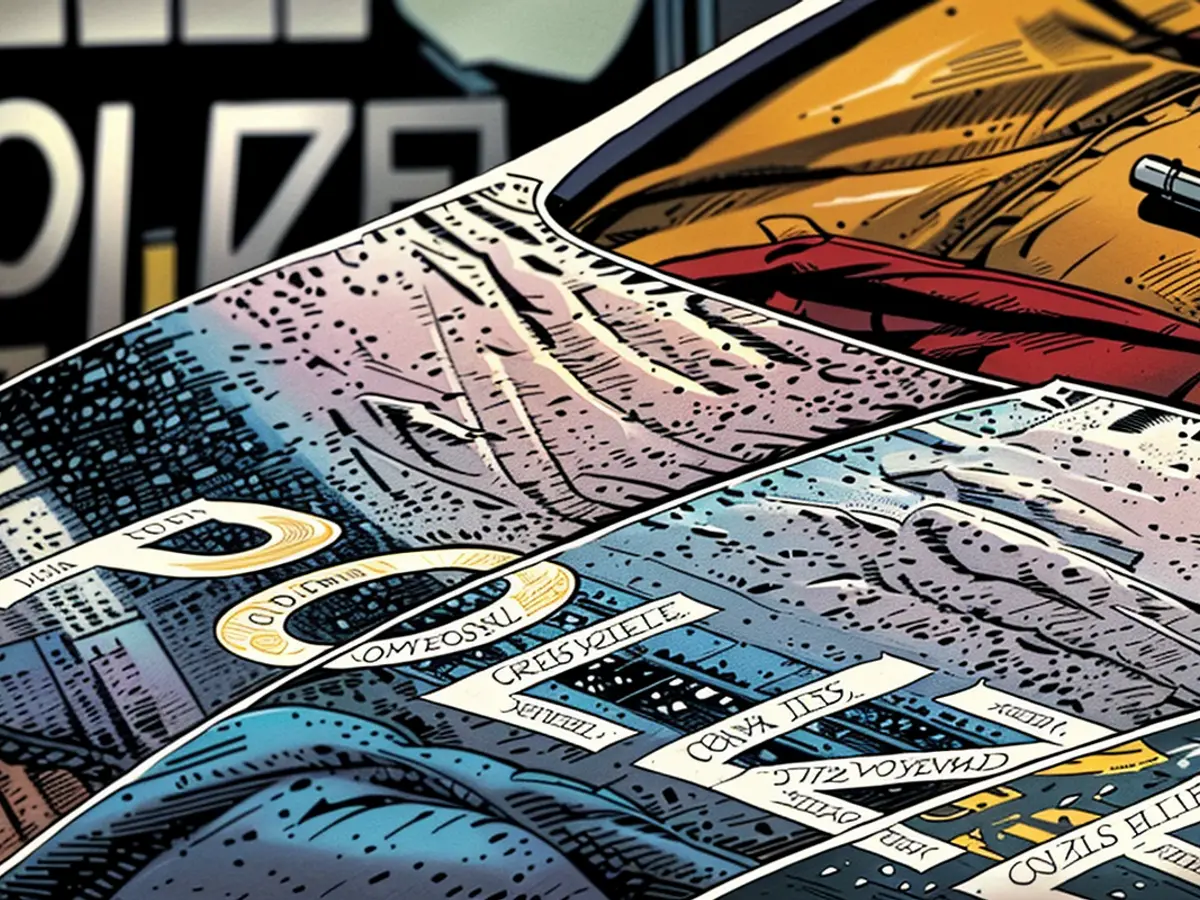How Germany plans to resolve the budget crisis in 2024? For several weeks, businesses and households in Germany faced challenges as government ministers attempted to reconcile their spending plans.
Germany's strategy for tackling the budget crisis in 2024
Thanks to a pivotal decision by the Constitutional Court in November, Chancellor Scholz's coalition was compelled to address a €17 billion gap in national finances while adhering to stringent borrowing constraints.
After weeks of behind-the-scenes negotiations, the Chancellor, alongside Economy Minister Robert Habeck (the Greens) and Finance Minister Christian Lindner (the FDP), announced a compromise during a press conference on Wednesday.
A significant victory for the FDP in 2024 involves the reinstatement of the controversial debt brake, limiting borrowing to just 0.35% of GDP.
Instead, the government will implement substantial cutbacks, particularly in climate protection, and seek alternative means of raising funds.
Here is an overview of how the government aims to stabilize Germany's finances in the coming year.
Major cutbacks in climate projects
The German Climate and Transformation Fund (KTF) found itself at the center of the latest budget crisis, and it appears to be one of its most significant casualties.
In a landmark decision, the Constitutional Court ruled that €60 billion in borrowed funds intended for addressing the COVID crisis cannot be redirected to the Climate Transformation Fund.
This fund is aimed at modernizing Germany's infrastructure to make it more climate-friendly and developing environmentally friendly transportation and renewable energy sources.
During Wednesday's press conference, Olaf Scholz emphasized that these goals remain unchanged but acknowledged that the government will have to find ways to achieve them with significantly fewer resources than before.
This includes foregoing some generous subsidies for electric cars and additional support for solar energy, among other measures, to reduce the fund by a total of €45 billion by 2027.
Nevertheless, Scholz emphasized that at least €160 billion for climate projects will remain intact.
Reduction of 'harmful' subsidies
According to Finance Minister Christian Lindner, the government plans to cease or reduce several environmentally harmful subsidies, saving approximately 3 billion euros.
These savings will be redirected to finance the planned reduction in electricity tax to lower energy costs for households.
"Old subsidies that are no longer needed now help us define priorities in future areas", said Lindner.
Currently, it's not entirely clear which specific harmful subsidies the government is referring to, as traditional culprits like public transportation allowances and tax reductions on company cars and diesel fuel will remain unchanged.
However, subsidies for kerosene are set to be reduced, potentially making air travel more expensive. The government also plans to introduce a plastic tax, which may affect prices for plastic-packaged goods such as toiletries and some groceries.
Increase in CO2 emission tax
The CO2 emission tax, currently set at 30 euros per ton, will be increased more than originally planned at the beginning of next year.
Starting January 2024, each ton of CO2 emissions will be taxed at 45 euros, up from 40 euros. Households are likely to feel this change the most when purchasing high-carbon footprint goods, such as energy, gasoline, and meat.
With the increased revenue, the government aims to allocate more funds to the Climate and Transformation Fund to mitigate the impacts of climate change.
Exceptions for 'extraordinary' expenditures
Germany's debt brake rule allows the government to take additional loans for unforeseen extraordinary situations, such as natural disasters or other crises like the COVID pandemic.
During Wednesday's press conference, Scholz stated that he wants to use this opportunity to allocate an additional 2.7 billion euros to aid the victims of the floods in the Ahr Valley that occurred in July 2021.
He also mentioned that the debt limit could be temporarily suspended again if the situation in Ukraine deteriorates, requiring additional military assistance or support. To achieve this, the government will try to garner the support of conservative parties the CDU and the CSU, although there is no certainty that the debt-skeptical opposition will agree with their plans.
Tightening sanctions for benefit recipients
While Labor Minister Hubertus Heil (SPD) successfully defended the planned increase in Bürgergeld scheduled for early 2024, long-term benefit seekers are not entirely exempt from government plans.
In the future, stricter sanctions from employment centers will be applied to benefit seekers who are not diligently seeking employment or displaying non-compliance. Another notable change is the temporary cancellation of financial bonuses for those undergoing additional training.
Another way the government hopes to generate funds is by encouraging more unemployed individuals, including refugees with long-term prospects in Germany, to enter the workforce.
Where is the government avoiding cuts?
While significant budget cuts are imminent, there are three areas where the government is avoiding compromises.
Firstly, Ukraine, which still intends to receive billions of euros for weapon supplies and assistance to support its weakening economy.
Secondly, social welfare, including plans to increase unemployment benefits by 61 euros to 563 euros per month and the introduction of a universal child benefit that consolidates all previous child support measures into one, costing the government an additional 2.4 billion euros annually.
Thirdly, transportation, primarily the reconstruction of Germany's outdated railway infrastructure. According to Habeck and Lindner, there will be no cuts in support for Deutsche Bahn in track repairs, although funds may need to be sourced from other places.
Speaking at Wednesday's press conference, Lindner also emphasized that, despite the need for savings, social standards in Germany will not be lowered.
"Many ministries are contributing, such as the Ministry of Transport, the Ministry of the Environment, and the Ministry of Labor," he explained. "But the main thing is that social standards will not be reduced".
Related topics:
In light of the budget crisis, politicians will need to find ways to balance Germany's finances, potentially leading to changes in various climate and environmental initiatives. The reinstatement of the debt brake in 2024 is expected to significantly impact funding for climate projects, with cutbacks in areas such as electric vehicle subsidies and solar energy support.
Politics surrounding the debt brake and budget crisis have been a point of contention between the government and opposition parties, and the topic has been widely covered in the media, including reports on budget crisis talks being postponed and the government's reluctance to reduce social welfare spending.








